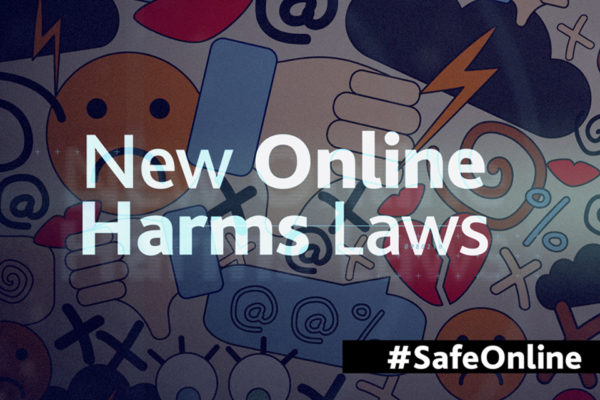UK Government publishes ‘landmark’ Draft Online Safety Bill
Following a Queen’s Speech yesterday in which the Monarch said that the UK would take steps to ensure “internet safety for all”, the Government has now published its Draft Online Safety Bill, which aims specifically to protect young people and clamp down on racist abuse online, while safeguarding freedom of expression including journalistic content.
In a statement published alongside the Bill this morning, UK Digital Secretary Oliver Dowden said:
“Today the UK shows global leadership with our groundbreaking laws to usher in a new age of accountability for tech and bring fairness and accountability to the online world. We will protect children on the internet, crack down on racist abuse on social media and through new measures to safeguard our liberties, create a truly democratic digital age.”
Social media clampdown
The Bill signals further intent by the UK Government to lead the global charge on regulatory issues when it comes to media tech. Last month, government ministers spearheaded and signed a joint declaration on online safety with other G7 leaders ahead of the 2021 Summit, to take place in the country in June. This new domestic framework also carries a heavy emphasis on social media, including:
- Further provisions to tackle prolific online scams such as romance fraud, which have seen people manipulated into sending money to fake identities on dating apps.
- Social media sites, websites, apps and other services hosting user-generated content or allowing people to talk to others online must remove and limit the spread of illegal and harmful content such as child sexual abuse, terrorist material and suicide content.
- Ofcom will be given the power to fine companies failing in a new duty of care up to £18 million or 10% of annual global turnover, whichever is higher, and have the power to block access to sites.
- The largest and most popular social media sites (Category 1 services) will need to act on content that is lawful but still harmful such as abuse that falls below the threshold of a criminal offence, encouragement of self-harm and mis/disinformation.
Protecting journalistic freedoms
In addition to protecting basic freedom of expression rights so that users can continue to engage in robust debate on online platforms, the document proposes specific legislation with regards to journalism:
- Content on news publishers’ websites is not in scope. This includes both their own articles and user comments on these articles.
- Articles by recognised news publishers shared on in-scope services will be exempted and Category 1 companies will now have a statutory duty to safeguard UK users’ access to journalistic content shared on their platforms.
- This means they will have to consider the importance of journalism when undertaking content moderation, have a fast-track appeals process for journalists’ removed content, and will be held to account by Ofcom for the arbitrary removal of journalistic content. Citizen journalists’ content will have the same protections as professional journalists’ content.
In response to the announcement, Marcela Kunova, Editor of Journalism.co.uk, told FIPP:
“We welcome the effort to protect young people online and clamp down on abuse and spread of misinformation. In its current form, the bill states that journalistic content will be largely exempted and so will be citizen journalism, which could be a minefield for social platforms. We will keep on monitoring the debate around the bill and inform the journalistic community about its implications.”
The draft bill will now be subject to pre-legislative scrutiny by a joint committee of MPs in this session of Parliament, before being finalised.










